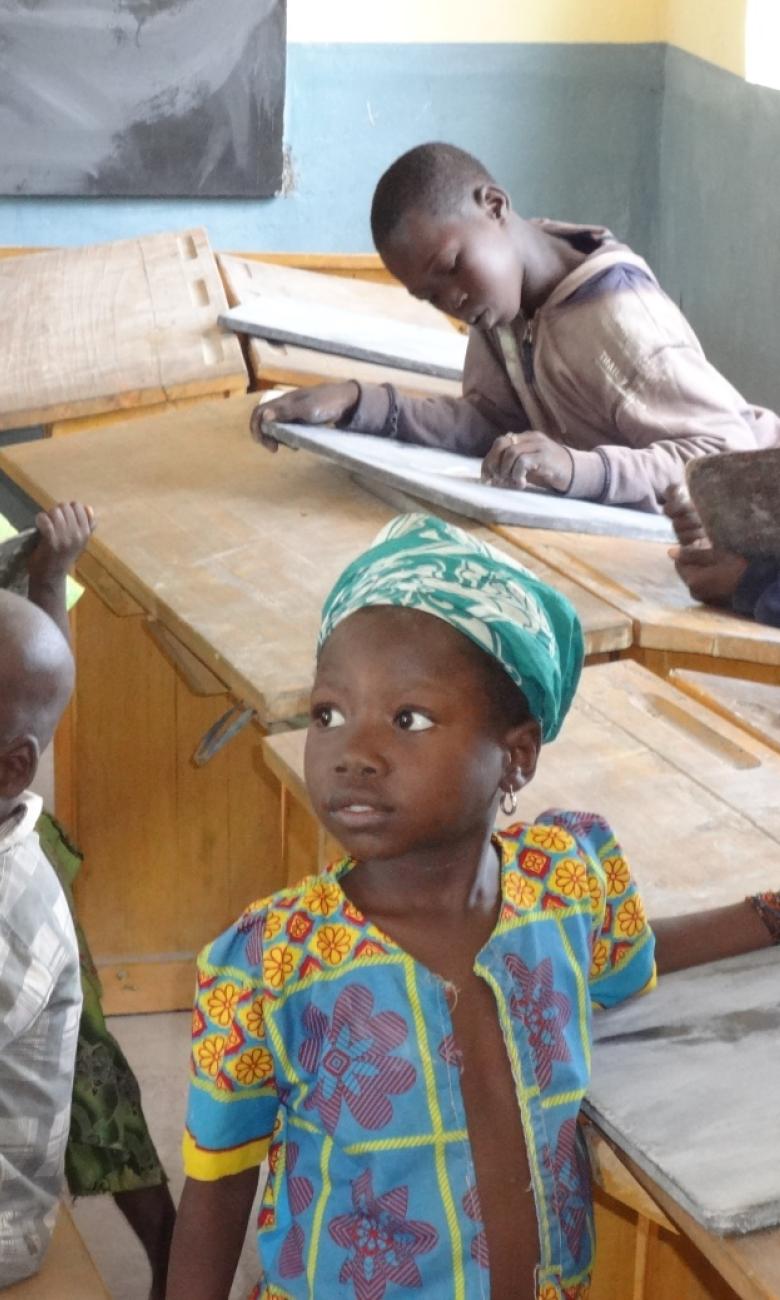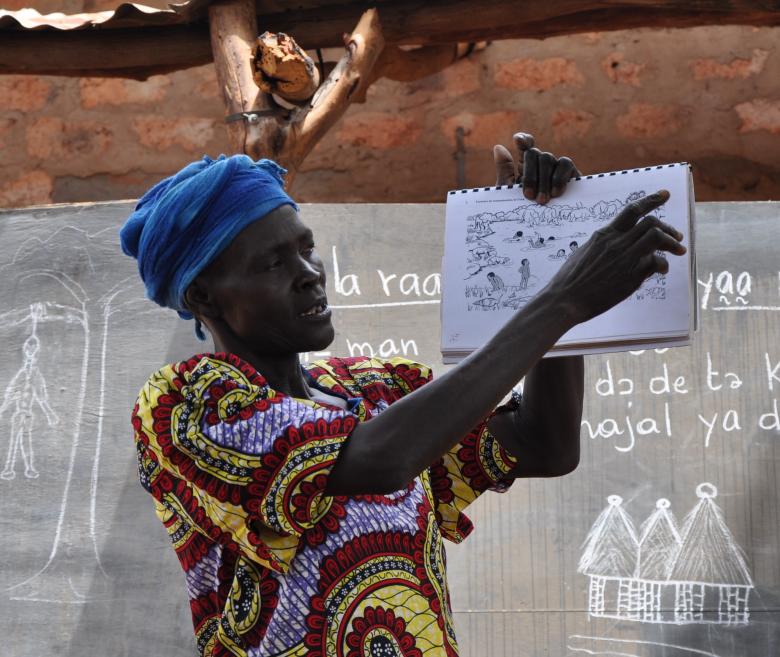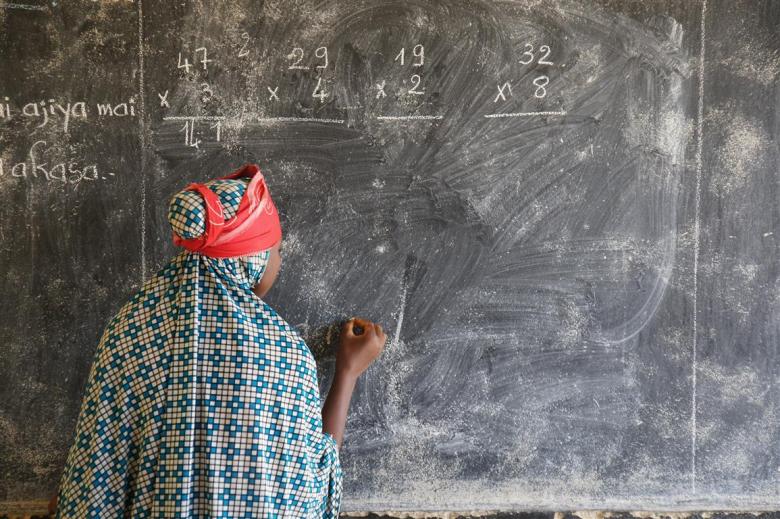Multilingualism in Swiss schools inspires international cooperation
For students in Switzerland, being taught in their regional language – French, German, Italian or Romansh – is the norm. Many children around the world, however, attend school in a language they don't understand. Plurilingualism and teaching languages in schools have long been important values in Switzerland – and this strength of the Swiss school system serves as a blueprint for the country's international cooperation in its programmes to support education.
The Sustainable Development Goals recognise the importance of language of instruction for equitable quality education. Plurilingualism in compulsory school and the promotion of the mother tongue are acknowledged as good practices by UNESCO. Children learn better and fail less often when their first language of instruction is their mother tongue. However, almost 40% of students worldwide do not have access to instruction in a language that they speak or understand, which hinders their learning. Many children drop out of school early, or cannot read or write when they finish primary school. Such is the case in Chad and Niger, where children are taught almost exclusively in the official languages without regard for the linguistic diversity of these countries. The Swiss Agency for Development and Cooperation (SDC) draws on the strengths of Switzerland’s educational system, particularly plurilingualism, to develop its programmes to support quality education in its two partner countries.

Plurilingualism in the Swiss school system: an added value for international cooperationThe Swiss school system reflects the country's cultural and linguistic diversity, with its four languages of instruction depending on the linguistic region and the introduction of a second national language and English in primary school. Speaking several languages is seen as a source of personal enrichment as well as an asset in the job market. But language is more than just a way to communicate: it is also a window onto another culture. Plurilingualism ensures social cohesion and respect for diversity and is a part of the Swiss national identity. Children who do not speak their regional language at home can receive support in their language of schooling to keep them from falling behind. In most cantons, they can also take courses in their language and culture of origin. Strong skills in the mother tongue are important for learning other languages, formal learning in general, and social integration. |
In Chad, local-language teaching boosts student and parent participation in schools
Chad's educational system is one of the weakest in Sub-Saharan Africa. Only 41% of children finish primary school, and only 1 in 5 can read, write and do arithmetic at the end of the primary cycle. Through its ProQEB programme (promotion of quality primary education), the SDC promotes local-language instruction during the first years of primary school, with a gradual introduction of the official languages. This programme emphasises teacher training, the adaptation of course content to local people's needs and circumstances, and an active pedagogy. "Since we've trained teachers in this new pedagogical approach and started giving lessons in local languages, we've seen that students participate more in class and learn better and that their parents are more involved," says trainer Fotina Mirayam. These new approaches have also allowed schools to pass important messages to families, such as how to make water drinkable or protect oneself against malaria, which has reduced community conflict. Following the success of its pilot phase in southern Chad, the programme extended its activities to four provinces in the north and south of the country. Bilingual instruction in the national language and official language is used in certain primary schools, schools in nomadic communities, basic education centres for children not in school, and adult literacy centres.

Local-language teaching helps Sylvain return to school
Sylvain's story illustrates the importance of adapting the language and content of instruction to people's life circumstances. Sylvain is 12 years old and lives in a small village in southern Chad. He stopped going to school because his parents could no longer pay his school fees and no longer thought it useful for him to attend school. His goal was to tend cattle for the region's migratory herders. After Sylvain attended an awareness-raising meeting in his village, he learned about opportunities for out-of-school children to receive SDC-supported education in the local language, Sar, and in French. Sylvain says: "We started by learning a story in Sar called 'the hyena, the monkey and the rabbit'. We used this story to learn how to read and write in Sar and then in French, and then do maths and other subjects. In seven months of lessons, I learned many interesting things, more than I had learned in my old school. A few days ago, my father was talking to my mother about how I don't talk about my plan to work with the migratory herders any more. Then he said he would bring my two younger brothers to my local-language school next year. I think he realises that the programme changed me and that we learn a lot of good things there."
© Enfants du Monde (Mathieu Savoy)
Supporting political dialogue in Niger to institutionalise local-language instruction
Despite improved access to basic education, student performance in Niger remains very poor and many drop out of school. Over 90% of students cannot read or do maths when they finish primary school. The SDC has been working in Niger for several years through its programme to support quality education (PAQUE). Here, too, the emphasis is on bilingualism: initial instruction is in the local language, and French (the official language) is introduced gradually. More than 20,000 teachers have been trained through the PAQUE programme, and teaching materials in local languages have been adapted to the students' life circumstances. In only a few years, students at SDC-supported schools have seen their performance improve, with literacy rates at the end of primary school rising from 4% to 20%. Thanks to its expertise in this area and the encouraging results of the PAQUE programme, the SDC is playing a key role in the political dialogue with the government of Niger to advance educational reforms and promote bilingual instruction. The SDC also supports a regional master's programme at the University of Niamey for public officials and leaders of civil society organisations in various West African countries. This programme aims to develop teaching methods that take into account local circumstances and languages.

Image Cover: Reading in the national language, at the school of Bourbo, in Moyen-Chari Region, Chad © Enfants du Monde (Mathieu Savoy).
Image Lead: Basic literacy writing lesson at the Donanga school, Moyen-Chari (Chad) © Enfants du Monde (Mathieu Savoy)




